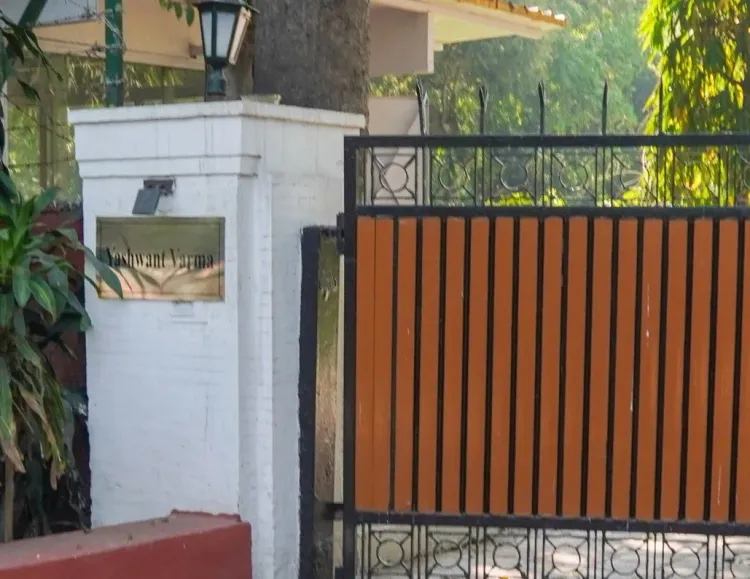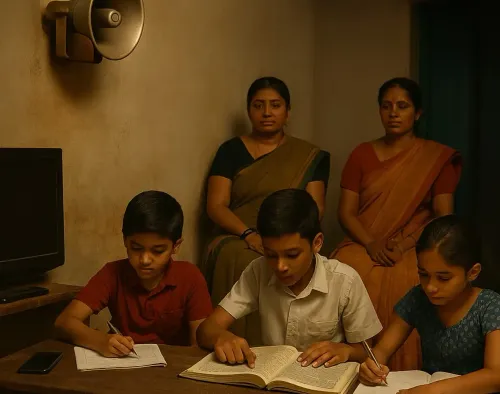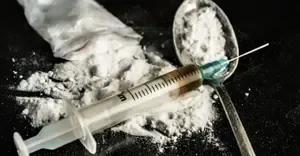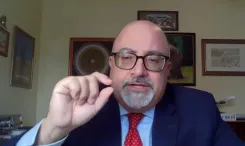Did the Committee Report Uncover Serious Gaps and Possible Cover-Up at Justice Varma's Residence?

Synopsis
Key Takeaways
- Critical inconsistencies in Justice Varma’s statements were identified.
- The presence of burnt currency raises serious questions.
- Robust security measures make unauthorized access improbable.
- Justice Varma’s defense against conspiracy claims lacked substance.
- Possible involvement of aides in suspicious activities.
New Delhi, May 31 (NationPress) A committee formed by former Chief Justice of India, Justice Sanjiv Khanna, has delivered a highly critical report concerning the fire incident that occurred at Justice Yashwant Varma’s home on March 14.
The conclusions drawn by this three-judge panel significantly challenge Justice Varma’s account of the events, his actions before and after the fire, and particularly the recovery of burnt currency notes from a storeroom within his residence located at 30 Tughlak Crescent, New Delhi.
Inadequate defense and unsubstantiated conspiracy claims
In his written response, Justice Varma attempted to dismiss the allegations by suggesting a vague conspiracy against him. He alleged that videos shared by the Chief Justice of Delhi High Court on March 17 were part of a malicious plot to tarnish his reputation, according to sources.
However, the committee found that Varma did not specify any individuals behind this purported conspiracy, nor did he present a credible motive for such targeting. His conspiracy narrative remained unsupported and was not elaborated upon in his reply or during committee proceedings, sources noted.
Inconsistencies and omission of key details
The report highlights a significant inconsistency in Justice Varma’s statements regarding visitors to his home during the incident. His initial response omitted any mention of his cousin sister and her husband, who arrived from Dubai on Holi evening. This omission raises doubts about the thoroughness and transparency of his defense.
Security measures undermine claims of unauthorized access
Justice Varma contended that the residential area was easily accessible, potentially allowing outsiders to plant evidence. The committee firmly rejected this assertion, citing robust security arrangements. The residence is monitored by a static detail of one plus four security personnel, a Personal Security Officer (PSO) stationed at the gate, and a trusted team of domestic staff residing on the premises, sources indicated.
Given these stringent controls, the report asserts that it would be nearly impossible for currency to have been planted in the storeroom without the knowledge or involvement of those living in the house.
Disputed cause of fire and questionable response
Concerning the cause of the fire, the committee addressed media speculation regarding an explosion or deliberate arson. Justice Varma only mentioned “arson” after the Chief Justice of the Delhi High Court used the term to facilitate the PPS visit. Officially, Varma maintained that the fire was due to a short circuit.
The report criticized him for failing to take any significant steps to investigate or secure the scene after his return from Bhopal on March 15, a serious oversight considering the gravity of the incident.
Sudden acceptance of transfer raises eyebrows
Further complicating matters is Justice Varma’s acceptance of a transfer order issued on March 20, shortly after the fire. The committee found it peculiar that a senior judge, who had served diligently in the Delhi High Court for nearly a decade, would immediately accept a significant transfer without raising any questions or consulting his family.
Possible involvement of household staff in the removal of burnt currency
The committee’s report suggests that Justice Varma’s closest aides may have engaged in suspicious activities following the fire. Evidence indicates that trusted household personnel and Justice Varma’s private secretary might have been involved in removing burnt currency from the storeroom in the early hours of March 15, after firemen and police had departed. The lack of any explanation or disclosure from Justice Varma or his staff regarding these actions severely undermines his credibility.
Breach of public trust and integrity concerns
The committee concluded that the trust placed in Justice Varma, who occupies one of the highest constitutional offices, was compromised by his actions and omissions. The presence of significant amounts of burnt currency within his home, along with his failure to account for it, represents a serious breach of public trust and integrity.










